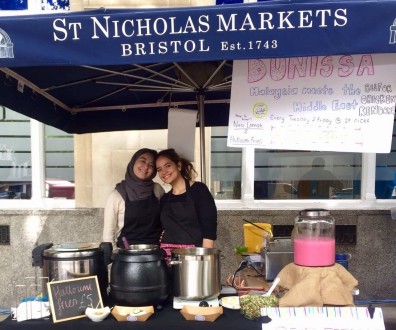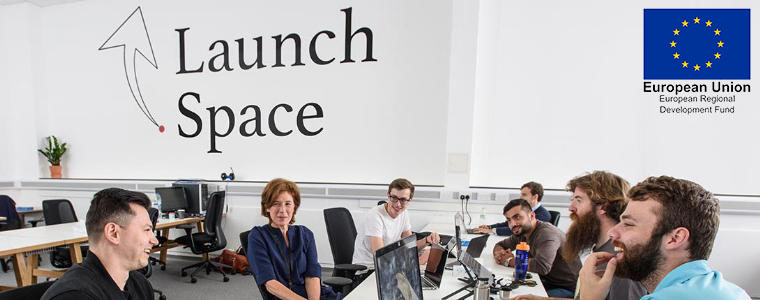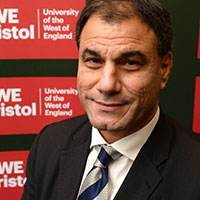Dunya Elbouni and Melissa Sargeant share a love of cooking and baking. While studying for a degree in psychology at the University of the West of England (UWE Bristol) they often compared recipes, posting their meals on Instagram and blogging about food, with a dream of one day running their own food-related business.
They never imagined the extent to which the University could support them in setting up such a business enterprise, especially as they were not on a business course. They were therefore pleasantly surprised to find out about UWE Bristol’s £20 challenge.
The scheme involves the University lending would-be entrepreneurs from any faculty £20 to set up a business with the challenge of generating as much income as possible in a week. Participants can keep any profit they make, with a prize awarded to the most innovative team. Melissa and Dunya took part, setting up a sushi and cupcake stall on the Frenchay campus. Working just two hours a day for four days, the pair made £400 profit and came second in the competition.
 Following their success selling food on campus, Dunya and Melissa were encouraged to apply for the University’s Innovate Internship. This offers budding entrepreneurs with support to set up and run a business venture. Successful candidates are given £1000, provided with desk space (if required), and allocated a mentor who helps them set and achieve goals.
Following their success selling food on campus, Dunya and Melissa were encouraged to apply for the University’s Innovate Internship. This offers budding entrepreneurs with support to set up and run a business venture. Successful candidates are given £1000, provided with desk space (if required), and allocated a mentor who helps them set and achieve goals.
The pair pitched their idea of setting up a food stall at St Nicholas’ Market, based in Bristol’s city centre, as they saw an opportunity to sell fusion Middle Eastern and Malaysian cuisine. Gaining a place on the programme, they used the money to buy cooking and serving equipment, produce flyers, rent the space for a pop-up stall and, of course, to buy the ingredients.
Calling their business ‘Dunissa,’ a contraction of both their names, they served an array of food and drink over a six-week period in the summer. Their fare included halloumi fries, Tabbouleh and meals such as Beef Rendang (a spicy meat dish).
“We definitely learned how hard it is to run a business and it wasn’t as easy as we initially thought,” says Dunya. “I learned a lot about time management, teamwork and the importance of networking and learning from other traders,” she adds. Their allocated mentor had previous experience working with market stall holders. “He taught us about retailers, how to track our business and helped us with the marketing side,” says Melissa. “Most of all, he acted as a sounding board, and helped us with teething problems, given that he had previously encountered some of the issues we came up against,” she adds.
The market stall was a huge success, and running their own business gave them confidence when it came to applying for jobs after graduating in 2017. Melissa subsequently got a job in PepsiCo’s marketing department. “Going into the interview and being able to say that, at such a young age, I had worked as an entrepreneur who handled buying, selling, marketing, and made a profit, gave me the edge,” says Melissa. “Even now when I mention it in the company, it’s very different to what some of the other graduates have done,” she adds.
Dunya, meanwhile, landed a job at Screwfix head office, also working in its marketing department. “A lot of the interest I have for business came from that internship and running our food stall,” says Dunya. “It took us out of our psychology [course] and more into the business field,” she adds.
As well as offering a Team Entrepreneurship business degree course, UWE Bristol actively encourages and supports students wishing to set up business ventures as part of, or alongside their studies. To find out more about these opportunities, click here.








